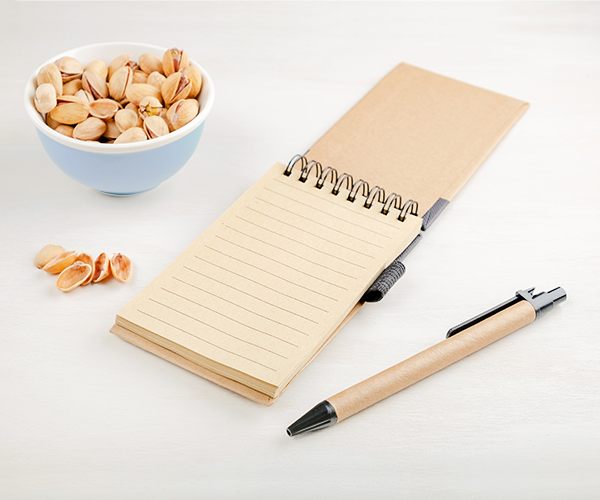
The COVID-19 pandemic has profoundly altered many aspects of our lives in ways we could not have imagined possible. For education in particular, the pandemic has brought about a shift to home-based learning on an unprecedented scale.
With the impending end of Singapore’s circuit breaker period, we are about to see another unprecedented shift back in the opposite direction as schools reopen, albeit in various variations. That’s two major disruptions in the same school year, and as a parent, you may be concerned about what these changes mean for you and your child. How will your child cope after two months of home-based learning? Are they sufficiently prepared for the resumption of school?
To be clear, there is no one magic solution, and it is important to remember that this has never happened before in Singapore. But there is still plenty you can do in the meantime to maximise the opportunities of home-based learning (HBL) and stand your child in good stead for when school reopens.
Here are 5 suggestions from us on how you can bridge the gap COVID-19 may have caused in your child’s education.

1. Use Free E-Learning Resources
If you are finding your child less occupied than usual during home-based learning despite his or her school lessons and assignments, then looking to a wealth of free learning resources available online could be just what you need.
Many enrichment centres, ourselves included, have come up with a kaleidoscopic array of complimentary guides and activity sheets to facilitate children’s home-based learning journey.
These downloadable resources feature specific curriculum-based activity sheets to boost your child’s academic knowledge, DIY projects that teach your child to see how theories they learn in the classroom can be practically applied in real-life situations, parenting tips and tricks for telecommuting parents to handle their children’s HBL routine, and more. Click here to access TLL’s exclusive collection of home-based learning materials that has something for every student.
In addition, non-profit organisation Khan Academy, for example, offers a comprehensive range of content for students of all levels in the form of interactive exercises and videos. Topics go beyond the traditional school subjects too and this could be an opportunity to introduce your child to computer programming and astronomy.
YouTube also offers thousands of educational videos on virtually every topic conceivable through its YouTube Learning channel. If your child is already spending a lot of time on YouTube - perhaps more time than you would like - why not try to engage them on a platform they enjoy using and are comfortable with, to augment their learning?

2. Consult Your Child’s Teachers and Tutors
Home-based learning has been a bit of a bumpy ride for everyone but the chances are that you are beginning to find an equilibrium between overseeing your child’s learning and seeing to your own work.
With additional breathing room, you may quite naturally start thinking about helping your child work on subjects or areas where you think they need improvement.
This could be a good time to check in with your child’s teachers or tutors to get a clearer idea of what your child needs to work on, or ask for recommendations of activities your child can do while at home.
Like you, they may finally have some bandwidth themselves to offer suggestions and advice. Give the teachers and tutors some time to formulate a reply as they have many other parents and students to think about too.
Our TLL teachers welcome constant interaction from students and parents alike. Once in a while, our dedicated teachers will set some time aside, outside of work, to check in with their students, update concerned parents with their children’s progress, and offer suggestions on how each student can elevate certain skills from home.

3. Turn Playtime into Opportunities for Learning
Most parents will have heard the spiel about how video games can teach children about problem-solving, teamwork and sportsmanship. But that’s only scratching the surface of video games’ educational potential.
A game like the turn-based strategy title Civilization, for example, can be used variously as an introduction to world history, diplomacy and resource management.
Games you may have played before and enjoyed could have, when deployed judiciously and in moderation, much to offer in terms of learning opportunities. With the additional time being spent at home, there may be no better time to get fun and creative with your child.
Learning through playtime doesn’t just have to be about video games, however. Board games can be just as effective and fun in teaching your child soft skills and interesting concepts.
Old favourites like Monopoly and Risk still work like a charm, although you may also want to consider games with a more current take such as the cybersecurity-themed Potato Pirates 2: Enter the Spudnet from local company Codomo!

4. Short-Term Disruption,Long-Term Process
Amid all the interruptions the Covid-19 pandemic has caused to your child’s education, it’s also good to maintain a broader perspective on things and not worry overly.
Your child’s educational journey is a long-term process that will span at least 12 years. A two-month hiccup, however disruptive, is unlikely to negate the years of learning and acquiring knowledge that your child has undergone or will undergo.
Instead of worrying about things you cannot control, start thinking further ahead about the skills, attitudes or habits you would like to equip him or her with in the long term. Perhaps you already know what your younger child needs from your older child’s experience, and can plan accordingly.
If your child is particularly strong in some areas, you could also start exposing them to more advanced concepts. Or make the most of your time together at home and explore a new hobby. The possibilities are endless!

5. Make Early Preparations for Adjustments Needed
Working and studying at home have certain benefits, such as being able to wake up later because you no longer have to commute.
But schedules will have to be readjusted when schools reopen and, as parents have already experienced once with home-based learning, getting used to a new daily rhythm is no walk in the park.
If you are already worried about what to expect in the classroom for your child, you might want to make sure everything else around is as stress-free as possible. Reinstating old routines in advance, such as earlier bedtimes and study periods that remain at the same time when school reopens, can go a long way in smoothening the adjustments you and your child will have to make when the time comes.

Keep Your Child’s Learning Journey On Course
The disruption caused by the Covid-19 pandemic to education all around the world has proven challenging to deal with, but there are also opportunities to be found.
At The Learning Lab, we believe in finding different ways to make learning fun and engaging for our students.
We have put together a compendium of enjoyable home-based learning resources that include activity sheets, guides, quizzes, science experiment instructions and more as succour for your child's learning journey . Click here to discover a treasure trove of complimentary home-based learning materials that promote learning in a fun way.
The Learning Lab is now at locations. Find a location that suits your needs.
If you have any questions about our range of programmes or class schedules, you may contact us at 6733 8711 or drop us an email at enquiry@thelearninglab.com.sg.


